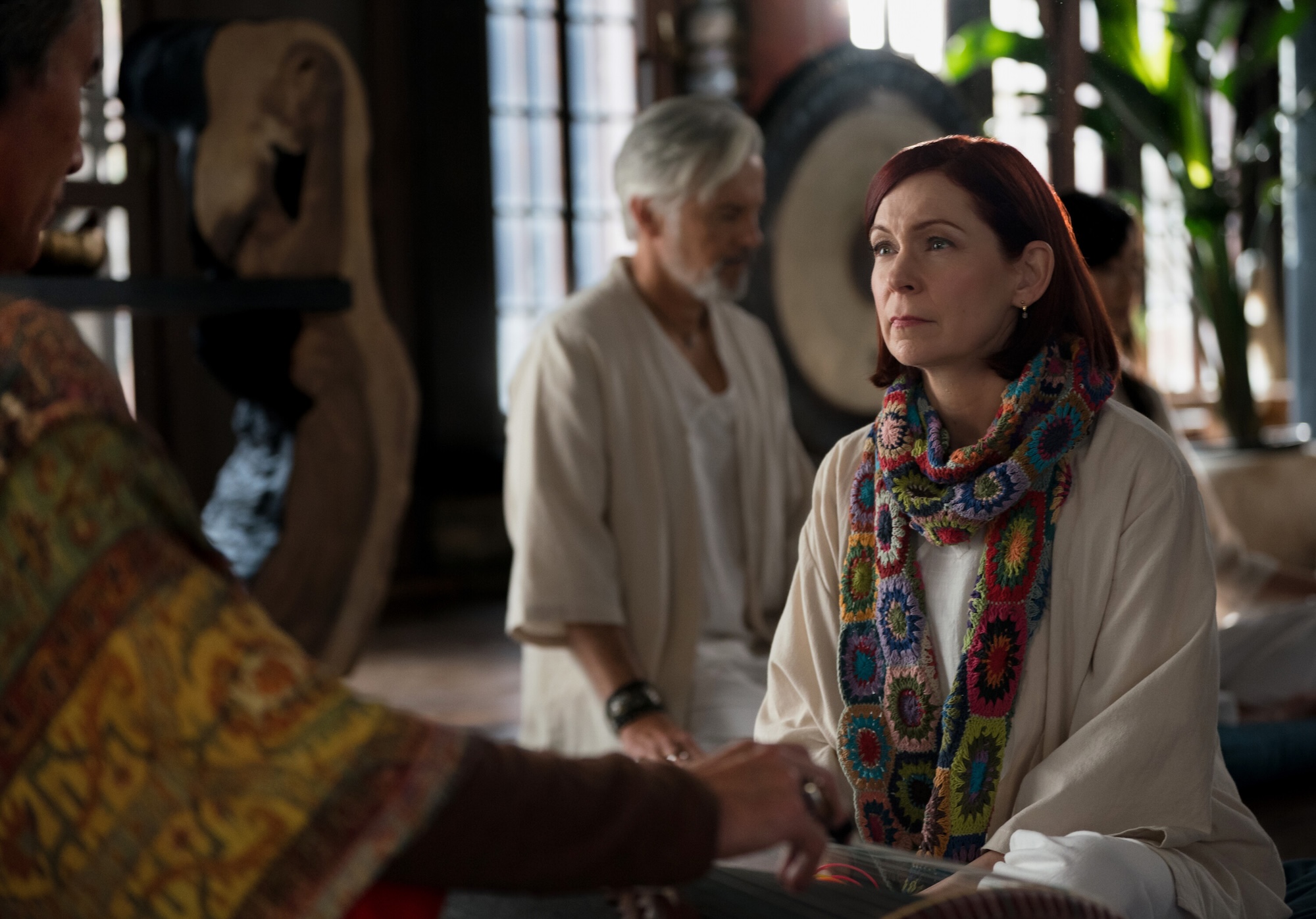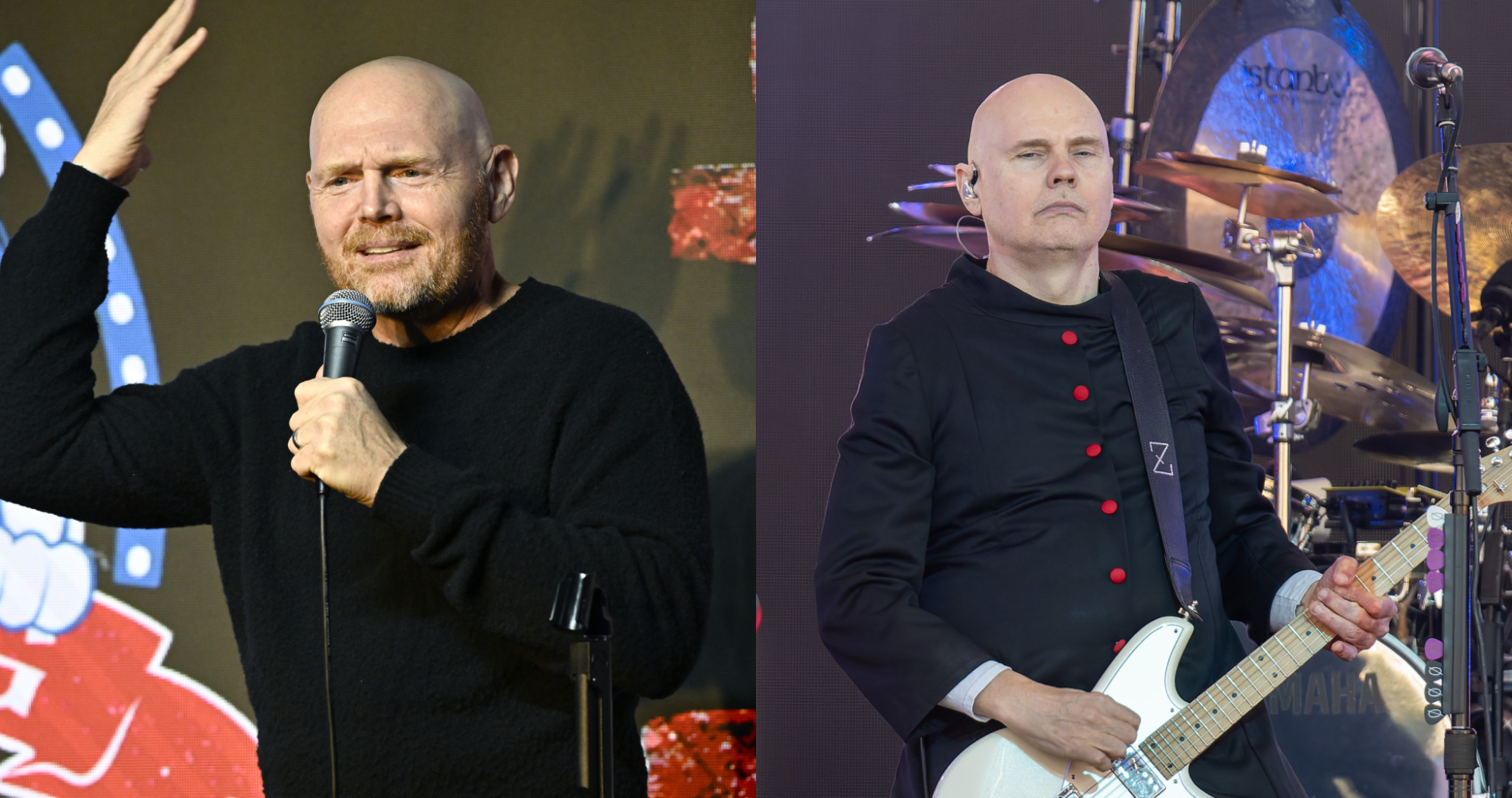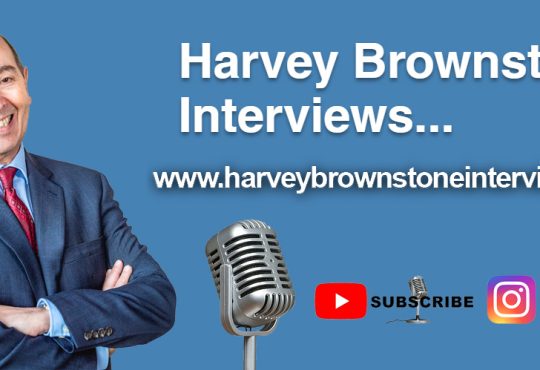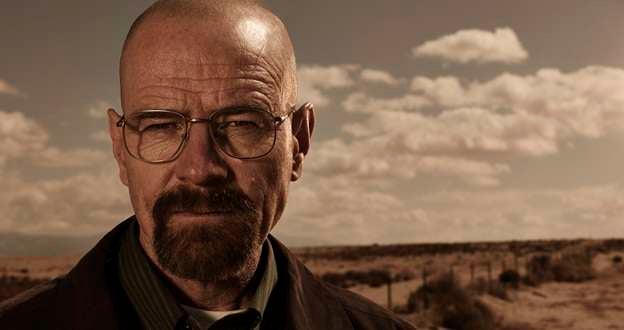“Mate, Go for It”: A Breakdown of Rishi’s Big Night on ‘Industry’
Rishi Ramdani can’t stop himself. After escaping a Christmas bonfire thrown by his stuffy new neighbors, he retreats to the bathroom and opens a colleague’s OnlyFans account on his phone. As he urinates, he giggles with sick glee at a lewd video and ignores a blinking notice: “Payment Declined.” A moment later, blood starts dripping from his cocaine-powdered nose, landing directly on the face of his infant son, who’s been strapped to his chest.
This jarring 30 seconds of television haunts the latest episode of Industry, an all-out plummet into the depths of Pierpoint’s most volatile desk trader. Rishi is lost to his addictions—to sex, drugs, and gambling—and his professional life has begun bleeding into his quickly crumbling domestic one. Quite literally.
“No acting required,” Sagar Radia, who plays the manic multitasker, jokes about his nasal drip.
In truth, though, the cringe-inducing scene required some new skills. Though Radia used a doll for a few shots, he had to cradle a real baby when the production filmed its bloody close-ups. And, unlike when he’s simply shouting across the trading floor, the actor needed to quietly convey the multiplexity of his old-school, foulmouthed finance bro with just a few expressions. “We were on a night shoot, we were running out of time, and we were trying to find this real moment that wasn’t long but said so much,” Radia says. “I gave it everything I could.”
Originally conceived as a cold open by Industry’s creators, Mickey Down and Konrad Kay, the bathroom scene tingled with so much depravity that HBO requested it be moved further into the first act. “We love the idea behind it,” Down recalls network executives telling them. “But to open up in this loo with a baby and this blood, it just feels like we’re slapping the audience in front of the face.”
Like Rishi, Industry has never been afraid to provoke a reaction. Over its first two seasons, the explicit, high-stakes series followed its trio of sales desk graduates—Harper, Yasmin, and Robert—as they wined and dined clients, ingested every kind of drug, engaged in toxic relationships, and jockeyed for position within their London investment bank’s sink-or-swim ecosystem. As those three grew within the company, Rishi lingered in the background, a soundtrack of British profanity in the heat of trade deals and stock explosions.
But in “White Mischief,” the midway point of the show’s third season, Industry finally puts the abrasive alpha male front and center. Not quite a bottle episode, it follows the trader over a calamitous 48 hours as he sweats out a risky financial position at Pierpoint, delays payment to a personal gambling collector, and negotiates his social status at home, all before going into a full-tilt meltdown at a casino. It’s a frenetic, adrenalized, stress-inducing hour that only highlights Radia’s magnetizing screen presence and the show’s format-pushing ambitions.
“[We were] trying to create something that felt like the perfect encapsulation of what Industry could be,” Down says, “while also shining a light on a character who we absolutely love, who’s a fan favorite, and who we want to know more about.”
When Down and Kay began writing Industry, they envisioned Rishi as someone to “fill in the gaps,” another character to contribute to the London trading floor’s high-stress environment. The pair based him on a trader they’d known during their early careers in finance, using memories of his testosterone-fueled machismo to develop Rishi’s abusive vocabulary and performative nature in the office.
Radia auditioned for the role expecting a quick, three-episode arc, as outlined in the script, but his energy and humor convinced the creators that he needed a real spot on the roster. As they progressed through the first season, the pair eventually wrote out a secondary script so that actors could record background shouting and conversations to make the trade floor sound and feel more immersive—it was the perfect home for Rishi. “We thought, ‘OK, we can bring some humor into the script, and Rishi can fill in those little pockets of air between bits of dialogue,’” Down says. “We just started writing without a filter because HBO never checked that stuff.”
The extra noise proved invaluable. Rishi’s creative slew of insults and high-octane personality inspired fan edits on YouTube and convinced Down and Kay to expand his role in Season 2. “Sagar had obviously proven that he was a phenomenal actor,” Down says. Over that season’s last couple of episodes, Rishi makes quite an impression: He cheats on his fiancée—a white woman eager to move out of the city and into a predominantly white area—with Harper moments before reciting his vows; he joins Eric Tao, a managing director of the CPS desk, and Harper in their attempted coup to leave Pierpoint, which ultimately falls apart. Once just a voice that could be heard uttering, “Get a new suit, you look like fucking Neo,” Rishi was now standing in the middle of the plot, alongside the show’s most dynamic characters.
In building out a third season, Down and Kay knew they’d have more opportunities to “widen their aperture” and shine a light on different parts of Pierpoint. Mostly, they wanted to take some risks. “We really wanted to do a stand-alone episode of a character that isn’t one of the main characters,” Down says. They instantly homed in on Rishi, whose life outside the bank hadn’t been explored like his peers’. And because this stand-alone would be the milestone 20th overall episode, they added a disclaimer to the top of the script, urging everyone to create “the most frenetic, fast-paced thing we’ve ever seen Rishi do.”
The moment wasn’t lost on Radia, who was eager to dive in and start preparing. “Then you have to try and look at some of these external factors and not let it influence you too much,” he says. “Someone from a British South Asian background doesn’t really get these types of opportunities. We’re not seen and represented on-screen in the way that Rishi is in a show, let alone a stand-alone episode. That in itself is mind-blowing.”
As they began brainstorming a story line, Down and Kay refused to interrupt the momentum of the season’s overarching narrative. The episode starts with a brief all-hands meeting about green-tech company Lumi’s failure. Then Rishi doubles down on a precarious investment position on Britain’s currency and predictably goes nuclear during an HR intervention about his hostile and uncouth office behavior. “Season 3 really burns through quite a lot of plot,” Kay says. “We were very conscious of the fact that we couldn’t zero in on Rishi without also keeping alive the serialized story of what preceded it and what follows it.”
Down and Kay were keen on going beyond London’s Canary Wharf and showing Rishi’s domestic life as a husband and father inside his new family cottage. Inspired by a 2021 Financial Times column that praised the show’s unstereotypical portraiture of a British Asian character, they became “obsessed with this idea of him being ‘other,’” Kay says, and wanted to interrogate how Rishi’s idiosyncratic and aggro instincts—the early morning rev of his sports car, for example—might fit into (or get consumed by) a quiet, rural, white, old-money community. “We kept talking about Get Out as an idea,” Kay says. “He’s this British Asian man who’s forcing himself to assimilate into this family, facing all these microaggressions. It’s like he feels the edges of an identity crisis, but he also very much feels like he belongs there.”
One place to unpack those contradictions was the local cricket pavilion, a stuffy, wood-paneled trophy house that Rishi inherited and intends to renovate into a modernized hall. Until he relents to passive-aggressive pushback from community leaders and neighbors, who have assumed ownership (and Anglified the name) of his dog, made him the butt of jokes in conversation, and mistaken him as a trespasser on his own property. “He’s such a contrasting character,” says Zoe Wittock, who directed “White Mischief.” “He always says he’s something, but he’s something else. He tries to exude confidence, but deep down he has a lot of insecurities.”
As Kay notes, the friction from Rishi’s surroundings makes for a compelling conversation about the kinds of people competing to own Britain. “Is it the old guy who invented the cover driver? Or is it people like Rishi, who are second- and third-generation immigrants who have made a shitload of money?” he ponders.
Regardless of the answer—if there is one—the small slights, the credit card debt, and the politically incorrect work culture Rishi’s toiled in boil over, setting the stage for a late-night descent into chaos. “I’m not nearly as alpha as Rishi by any stretch of the imagination,” Radia says. “But I think there was enough in there that they thought: ‘We know that he can play it, and he can take it to the levels that it needs to go.’”
The night before shooting started, Radia loaded up Netflix from his Cardiff apartment and rewatched Uncut Gems. “I thought, ‘There’s no more perfect film to get myself in it mentally,’” he says. Radia’s instincts proved accurate: Down admits the episode was essentially an homage to the film, particularly its depiction of a degenerate gambler on the brink of losing everything. “We love the Safdie brothers,” he says.
Not unlike Howard Ratner, in “White Mischief” Rishi is a man at odds with himself, his family, and his colleagues, in debt 200,000 pounds to a horse-gambling collector to whom he’s promised partial payment by the morning. His irrational solution is a blackjack table, where he rides a hot hand and eventually cashes out a sizable stack. But his winner’s high quickly evaporates. Instead of returning home, Rishi follows his id to a strip club, gets involved in a fistfight, then drags himself back to a roulette wheel, where he loses everything. It’s a tragic, heart-wrenching moment. A gut punch. “The thing that we talked about with gambling when we were writing this episode is that the buzz from losing is as intense as the buzz from winning,” Kay says. “It’s a very different buzz, but true degenerate gamblers are addicted to losing. I think Rishi has a little bit of that in him.”
To pull off the masochistic mindset, Radia couldn’t rely on his previous preparation of drilling lines and perfecting the finer points of fast-paced dialogue. This feverish sequence—drowned out by Algiers’s pulsating “Irreversible Damage,” which later morphs into a haunting version of Low’s “Little Drummer Boy”—challenged his nonverbal acting skills. “We had some rehearsal days,” Radia says. “I said to Zoe, ‘I need you to just pull me back and forth as to where I am emotionally along the journey, and then hopefully I can take care of the rest.’”
“Rishi’s such an extreme character, it’s really easy to kind of go overboard one way or the other in terms of how pitiful, how crazy, how intense, or how scornful,” Wittock says. “It was about me as a director having a little bit more distance to be like, ‘Just go and try it,’ to hold him or push him in the right place via constant dialogue throughout the episode.”
The balance also helped clarify the way Wittock would visually portray Rishi’s meltdown. She decided to capture the trapped claustrophobia of the casino. “I wanted to feel his sweat, I wanted to feel his dread, I wanted to feel how stuck he was. Even though we are in wide lenses and in this big casino, he’s completely enclosed on that table.”
At the start of the sequence, Rishi is supposed to glance at his phone, pinging with messages from his wife. The goal was to feel the weight of her concerned and confused barrage before Rishi succumbs to his own desperation, but in the editing room, everyone realized that the text notifications would work more effectively if they appeared right before he cashed out his winnings. “You think he’s getting up to go back to his family having won this money, but actually, he’s now in a club,” Down says. “I think it’s the worst, most damning moment for him. He’s managed to cheat the universe into giving him a second chance, but he then throws the second chance back in the universe’s face.”
Inside the club, Rishi seals his winnings inside a large envelope, starts to party, and drunkenly hits on a woman. Seconds later, her boyfriend begins beating him to a pulp, an assault he endures if only to keep an eye on his money. Radia’s stunt coordinator didn’t even teach the actor basic fight tactics. “He’s not about ‘How do I defend myself?’ He’s like, ‘How many hits can I get before I can get to my money?’” says Wittock, who implored Radia to keep his bleary, bloodied eyes on the envelope throughout the scene.
“There was a lot of work that was required. There were a lot of night shoots, which can mess with your psyche a bit, but it also played into the chaos of the episode,” Radia says. “It was just good fun.”
“White Mischief” ends on an emotional roller coaster. After losing all his money overnight, Rishi staggers into the Pierpoint trading floor like a boxer after a 12-round fight. The entire desk stares at him as if he’s a ghost. But he slips right back into trading mode, rallying the sales floor to capitalize on his similarly cataclysmic professional losses, which improbably (or luckily) end up earning the company a healthy profit.
Upon finally returning home, he comes clean about his reckless financial situation, asking for forgiveness from his wife, who reluctantly agrees to help him pay off his debts—before admitting that she’s having an affair with their neighbor. “Do you know what being a man is?” she asks. “It’s how you treat the people who expect your love.” On cue, Rishi enters his son’s room, crouches down to his crib, grazes his forehead, and breaks down into a puddle of a human. “We’ve never seen Rishi with such care for someone, and I think it shows that he actually has real, full, emotional depth that he constantly fights against,” Wittock says. “He was trying to keep that virility and keep that image of this sexual god and strong trader, but at this instance, something did change in his life. He does have to care for people. He can’t just keep fucking up like he’s been doing.”
Perhaps having finally discovered a sense of purpose, he takes a cricket bat to the inside of the pavilion, a cathartic middle finger to his previous passivity and to the old guard that’s been preserved in glass picture frames along the walls. He even takes his dog back, making sure to loudly and correctly pronounce its name. “It’s Rajah, not Roger,” he barks. Radia had two attempts to smash his heart out and received some motivational advice from Kay before filming. “He was messaging me, going, ‘Mate, fucking go for it,’” Radia says. “You don’t get these types of opportunities very often to do stuff like this.”
And then, he does what every degenerate gambler does. With renewed confidence, a free-swinging adrenaline rush, a clean balance sheet, and his signature cocky grin, he calls up his collector and asks to get staked more financing. “You know I’m good for it,” he says, smiling through the bruises he acquired from his previous night’s beating. “There’s a line in Season 2 where Jesse Bloom says, ‘It’s all just a cycle of victory and defeat,’” Kay says. “I think that’s him. That’s how a lot of these people live.”
If there’s an argument against Industry, it’s that none of its protagonists (which might now include Rishi) have suffered real consequences. No matter the adversity thrown their way, they land on their feet, pivot under pressure, and stay alive within the infernal spiral of their profession. “Money is an illusion,” Rishi tells Robert at the beginning of the episode, “a social contract built on trust.” The fugazi capital they buy and sell exists like Matthew McConaughey’s whistling, spinning finger. “This is a character who’s never had to actually feel consequences and has therefore become very entitled as a result,” Down says of Rishi.
But that may not last much longer.
“Things catch up to him in a pretty profound way,” he adds. “You’ll see.”







